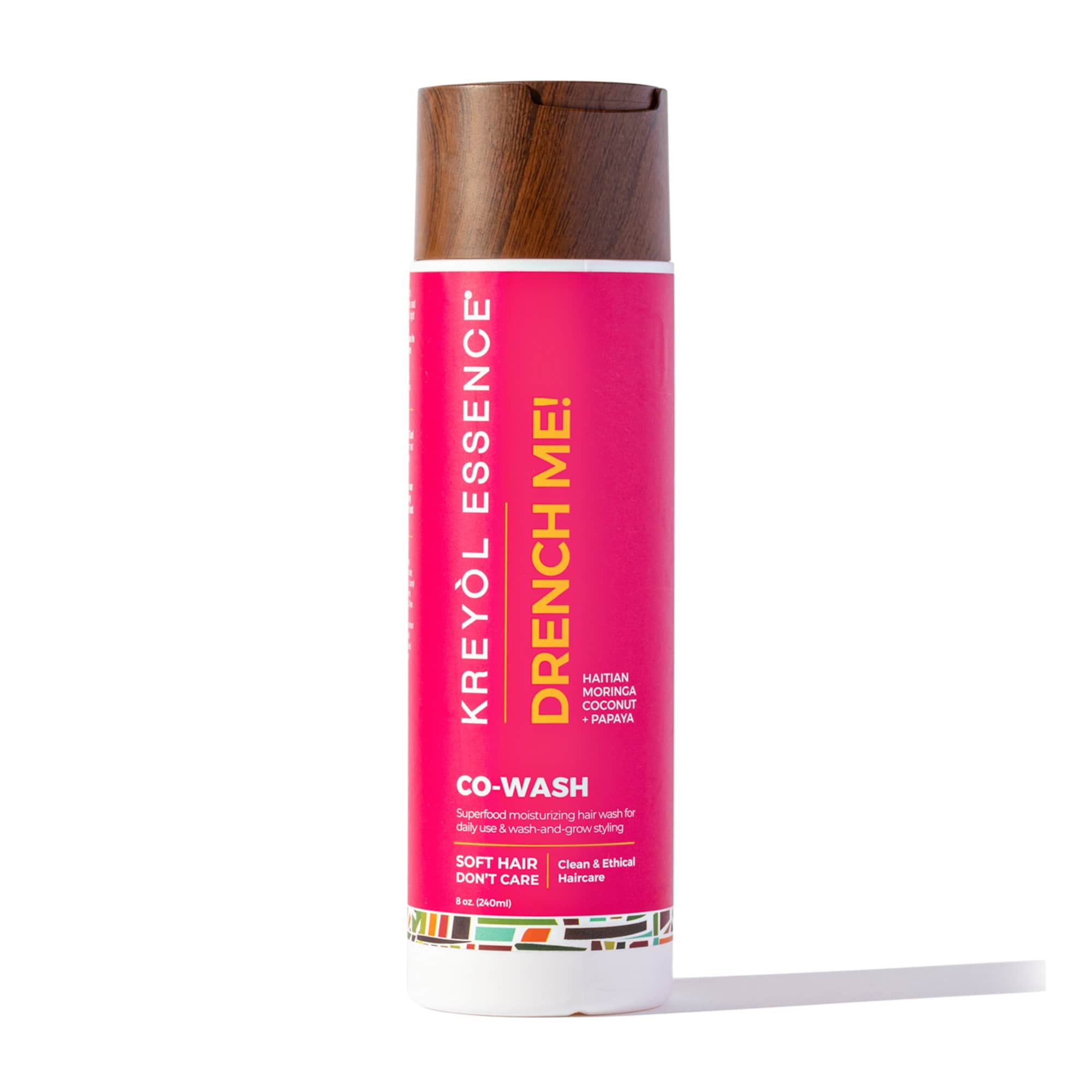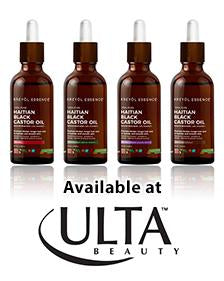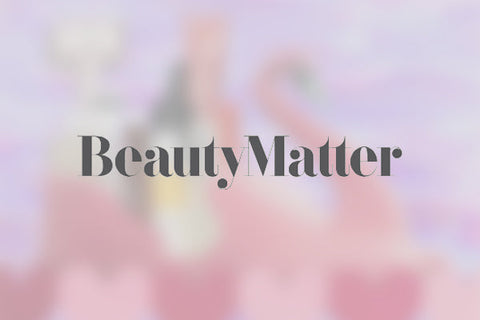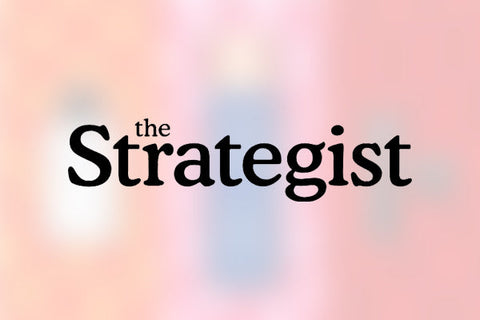News & Press
Beauty Inc: The Art (and Culture) of the Curl

When I became a mother, there were a few things I knew for sure: changing diapers, the need to hold the baby’s head sturdy and burping right after a feeding. Since I was a Black mom with a little girl, I also knew that I was expected to keep her hair picture-perfect at all times.
But here’s the thing about great cultural expectations — I did not possess the gift of styling my child’s hair. Too many times I sent her to pre-school and elementary with crooked parts, lopsided afro-puffs, uneven French braids, and on the days I was really struggling, we did “free hair”: a cute afro and colorful headband. One look I did with confidence were flat twists, which I styled into a faux-mohawk and a row of two-strand twists for bangs.
However, for the many years I was my daughter’s primary hairstylist, I noticed that while her body was growing healthy and strong, her hair wasn’t. In fact, after washing and conditioning with the products I’d use on my hair, I became hyperaware that her precious coils would “pop” off and break while detangling.
Her father, who’s first generation Haitian American, often insisted that her hair needed “lwil maskriti,” a dark oil made from seeds of the castor plant that grow in Haiti. (It’s commonly referred to as Haitian black castor oil). He swore that the Haitian women in his family regularly applied it to their scalp.
But I heard the opposite from my community of southern Black women, who had unlearned the ritual of “greasing the scalp” because the oil clogged the pores and prevented hair growth. To keep peace in the house, I’d only use “lwil maskriti” as a hot oil treatment once a month. But I couldn’t escape the reality. Our daughter’s hair wasn’t growing past her chin and at 13, she started asking questions.
I needed a professional stylist with “growing hands.”
With Brooklyn’s thriving beauty businesses and large Caribbean community, I didn’t look long before finding hair care stylists who could help me better understand why the treatments I gave my daughter were not working. The problem was me thinking we could follow the same Black hair care routines. Her braider, Bonnie Da Stylistt (née Naya Smith) explained that Jillian’s 4C hair texture required some extra TLC.
According to the hair hub section of Carol’s Daughter, whose founder Lisa Price started her hair care business in her Brooklyn home 30 years ago, 4C means that the hair has “tight, densely packed coils that are naturally the most prone to shrinkage, giving the hair a sponge-like texture. 4C curls can be extremely dry, brittle, and prone to breakage without the proper moisturizing routine.” (This is the opposite of my hair, which is a mix of 3C and 3B.)

Next Smith asked me, was I using oils on her hair daily? I sheepishly said, “No,” because I was told that oils weigh down Black hair. “Jillian’s hair doesn’t have any weight to it. Only in its natural state does it seem thick,” she educated me. “Her hair needs products that will thicken her hair.” Smith, who works with private clients in Clinton Hill, also warned me that “you’re not going to notice results if you’re using more than one hair care line — everything should be the same. Have you heard of Kreyòl Essence?”
Have I? Kreyòl Essence is the most widely available lwil maskriti in Brooklyn and I rushed out to pick up a bottle from Whole Foods on Third Street and Third Avenue in Gowanus. (It’s also sold at Ulta Beauty and JCPenney nationwide). Still unclear of its true benefits, I called up Kreyòl Essence founder Yve-Car Momperousse for a crash course. Here’s how she explained it:
“[Haitian] castor oil has up to 90 percent ricinoleic acid, which no other castor oil has. This means that instead of sitting on top of the skin, it goes deeper in,” said Momperousse, who was born and raised in Flatbush. “When it’s going down into the layers, the ricinoleic acid and fatty acids help to repair and also give sort of a pulsating effect, which is why it stimulates hair growth. That’s why Haitian castor oil, or black castor oil, is superior to general castor oils that you have.”
There’s also the cultural connection with black castor oil to Haitians who not only use it for hair treatments, but also as a catch-all for body ailments. “My grandmother, who still lives in Brooklyn, is 104 years old. Whenever she’s having any pains, she tells you to go get that castor oil,” laughed Momperousse, who now lives in Miami and regularly sources her castor oil from a farm cooperative in Haiti.
“If there was a time I had dandruff or my hair was breaking or I just added color, whatever it was, my grandmother would sit me down and pull out her castor oil,” she continued. “It’s truly a part of our culture and something that any Haitian person will have a memory about, which was the affirmation to start the business.”
After having a better understanding of how Haitian black castor oil would provide adequate moisture for my daughter’s natural, coily texture, it was time for a wash, blowout and trim so that we could see her current hair length. I went to my personal hair stylist, Karen Walker, who operates a beauty salon in Little Caribbean (formerly Flatbush). I should share now that my daughter is tender-headed. One reason I did her hair myself was because she’d squirm and fidget anytime a stylist would blow-dry or flat-iron her hair.

Karen’s serene studio and soft touch would be what my child needed. “A lot of my clients tell me, ‘You’re the only one who blow-dries my hair like this. You’re so gentle, everybody else is always tugging and pulling.’ That’s a misconception with Black hair: when it’s thick and full, it’s difficult to work with. It’s actually not, it just takes more patience.”
That’s exactly what Jillian needed — the time and care for her natural hair to thrive. Jillian’s braider recommended the following growth plan: keep her hair in a protective style for six weeks and a break for one week. Her go-to braid style is knotless individuals with purple ombre ends. This allows her versatility in styling (she is a teen) and it’s easy for her to wash and condition the braids herself. Her father and I alternate between oiling her scalp.
For her next hair break and trim, we tried the newly opened Soft salon at 472 Marcus Garvey Boulevard in Bedford-Stuyvesant for a silk press blowout. Although one should never judge a salon by its exteriors, Soft’s minimalist aesthetics immediately stood out from the block’s dated business facades. Once inside, owner and lead stylist Paris Guy offered complimentary water, tea, wine and WiFi as she began prepping Jillian for her treatment. I felt I entered a chic, boutique salon in Manhattan and for Guy, that’s exactly the feeling she wants her clients to have.
“When I lived in Brooklyn, I stumbled upon TAMA Open Streets,” she said, in reference to the arts, culture, food and music festival on Tompkins Avenue in the heart of Bed-Stuy. “I told myself, ‘Look how diverse this community is… look at all of these people. Where do they go for a Dry Bar vibe if they want to get in and out? Where do they go if they want something simple and somebody to take care of their hair?’ They have to leave the borough to find something like this.”
Guy went back to her Brooklyn apartment, pulled out a white board and began building out a business plan based on her expertise as an Aveda-trained cosmetologist and then business manager for radio personality Angela Yee. “There was a whole business renaissance happening in Bed-Stuy. There were 5 million coffee shops but where’s the niche hair salon? My friend owned a bakery on Bergen. Angela had two businesses. I said, I could be a part of this. I want it to be around my community, as well as provide what I felt was missing.”
This was also the goal for celebrity hairstylist Ursula Stephen, who celebrates 10 years as the owner of Ursula Stephen The Salon at 66 Lafayette Avenue in Fort Greene. “People have asked me so many times, ‘Why Brooklyn?’ and for me, the answer is so clear. Why not Brooklyn?,” said Stephen, whose clients include Natasha Lyonne, Ariana DeBose, Yara Shahidi, Storm Reid and Melissa Barrera.
“Brooklyn chose me a long time ago,” she said. “We have a long relationship. I learned how to do hair in Brooklyn. I assisted in salons in Brooklyn, everything that has been important for me when it comes to hair [has happened] here.”
For Stephen, tapping into her Grenadian heritage may be the next evolution of her hair care services. “At the salon we offer personalized, steamed hydration treatments. We mix up a few things based on what we think you need for your hair type,” she said. “In Grenada, we’re known for our spices, like nutmeg, so that actually might be a good idea for me to look into. I haven’t tapped into it yet, but soon come.”
Another celebrity stylist with Caribbean roots has found a home in Brooklyn for her first salon. Braider Xia Charles opened Braided New York at 39 Rogers Avenue in Crown Heights in 2021. Growing up in Tobago, where she graduated from the University of the West Indies with a BSC degree in law and economics with honors, Charles found extra income by braiding on the island and when she came to the U.S. after finishing her studies. “I started braiding hair in my mother’s kitchen and I guess you could say I was good at it,” said Charles with a knowing smile. Her clientele grew and she eventually rented a two-bedroom apartment in Brownsville, where she officially launched her business and has become known for her knotless braiding style, innovative patterns and “growing hands.”
“It’s very humbling because we’re from the Caribbean and we don’t like a lot of people in our hair,” said Charles of the almost intuitive ways she cares for and styles hair. “I build some level of comfort. My clients don’t see breakage in their hair. They see that their hair is flourishing. Braids is a protective style, it is not supposed to damage your hair. Even when I’m not available, the people who I’ve taught, my clients feel comfortable going to them.”
The reason Charles might not be available is because celebrity clients like Beyoncé, Cardi B., Nia Long and influencers such as Julee Wilson and Lellies Santiago have her booked and busy. Still, she makes sure that anyone who walks into her Brooklyn salon feels as if they are A-list.
“I treat your hair like if it was mine. I know how I want my hair treated,” said Charles. “I’m first a client before I am a stylist. I put myself in their position. I try not to tug on their hair. I treat their hair with love.”
Treating Black hair with love, that’s the Brooklyn way.
SOURCE: BEAUTYINC/WWD

















